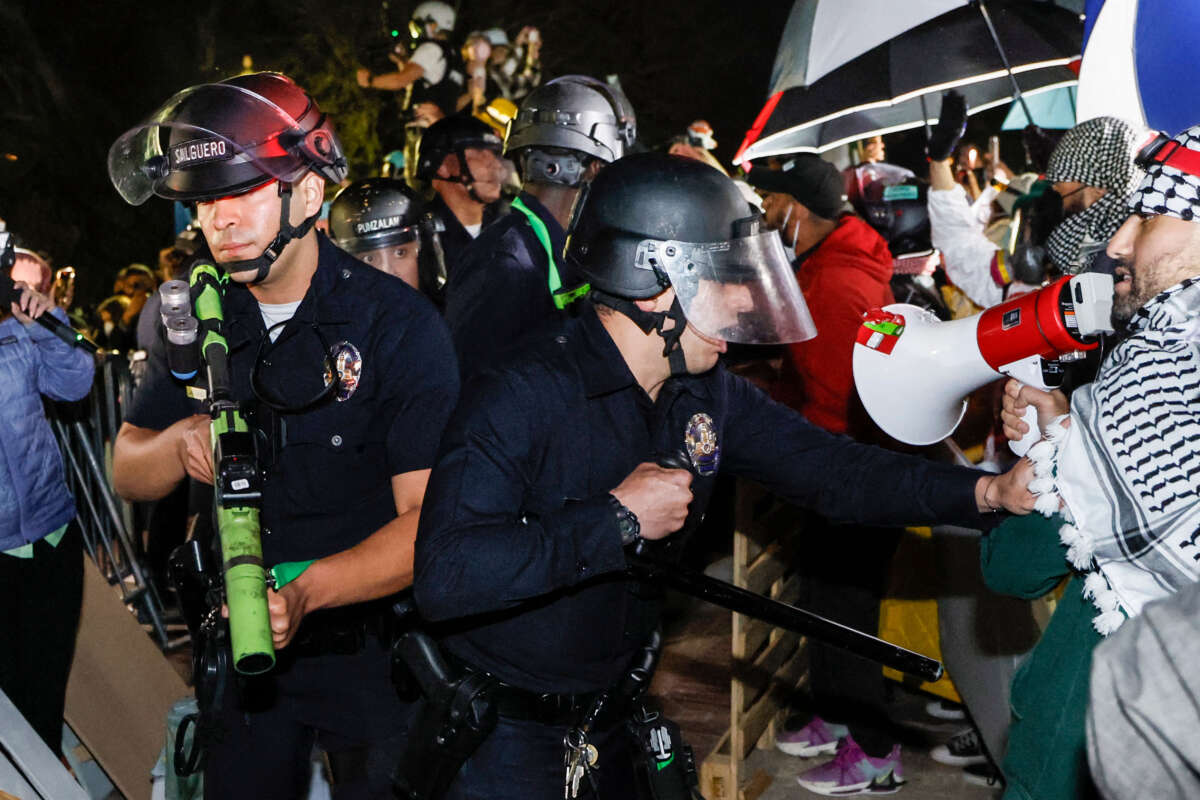Amid escalating tensions surrounding pro-Palestinian protests on college campuses nationwide, the Committee to Protect Journalists (CPJ) recently urged university authorities and law enforcement agencies to permit reporters, including student journalists, to safely cover the antiwar demonstrations.
“Journalists — including student journalists who have been thrust into a national spotlight to cover stories in their communities — must be allowed to cover campus protests without fearing for their safety,” said Katherine Jacobsen, CPJ U.S., Canada and Caribbean Program Coordinator. “Any efforts by authorities to stop them doing their jobs have far-reaching repercussions on the public’s ability to be informed about current events.”
As of Wednesday, students at more than 150 campuses have organized protest encampments to demand that colleges divest financial holdings from companies connected to Israel and its military. Over 2,000 arrests have been made by police.
“Repressive crackdowns on student protesters are happening across the United States, not just in Republican-led states like Florida but also in ‘blue states’ like New York and California,” Elizabeth Weill-Greenberg wrote for Truthout. “Students are battling on multiple fronts, confronting their universities’ ties to companies that supply weapons to the Israeli apartheid regime, facing college administrators’ repressive tactics, and pushing back against elected officials from both parties who smear them as antisemitic.”
Student journalists at these campuses have been at the forefront of covering the antiwar protests, with some even facing arrests while reporting on the demonstrations, despite clearly labeling themselves as the press.
“The protests mostly consist of chanting, praying and singing,” Arianna Smith, editor-in-chief of The Lantern at Ohio State University, told Politico. “The only time I have seen conflict arise firsthand is when police officers have gotten involved by yelling out warnings and initiating arrests.”
Since October 7, the U.S. Press Freedom Tracker — in collaboration with CPJ — has recorded at least 13 arrests or detentions and 11 assaults of journalists reporting on protests related to Israel’s genocide in Gaza.
“We are disturbed to see reports of student journalists assaulted or threatened with arrest on their own campuses,” the Student Press Law Center said in a statement. “All of us, including those on campus, are better informed when journalists can undertake their constitutionally protected duty without fear for their personal safety or wellbeing.”
Among those detained is FOX 7 reporter Carlos Sanchez, who was forcefully pushed to the ground on April 24 while reporting on a protest at the University of Texas at Austin. Sanchez is currently being charged with Class C misdemeanor assault and interference with public duties.
“It’s important to keep in mind that none of this would have happened if American universities weren’t inviting militarized police forces onto campuses to break up student protests,” Seth Stern, Freedom of the Press Foundation’s (FPF) director of advocacy, said in a statement. “The police response to the protests — against journalists and students alike — has been far more violent than the protests ever were.”
